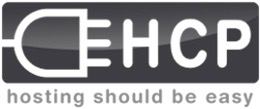About Easy Install Scripts
Question:
installed joomla using the script, the default language is set to turkish even though i selected english to edit. How to revert everything to english?
downloaded and installed the joomla package manually, solved the language problem, works like a charm 😉
Info:
the url’s in easy install scripts are not dynamic, they are written out there,
so, they may become out of date as time passes,
as new ehcp versions are released we will try to update them, but not guaranteed,
So, easy install scritps may not contain latest and best software, they are only an easy way for the impatient…
Question: my next question would have been, can we update the scripts manually? The script installation feature is pretty helpful though, gives a fair idea of the many scripts that are available.
on that note, can we use zikula application framework?
Answer:
Sure you can update existing scripts, as well as add new ones..
1-To update existing easy install scripts:
Reason for update may be: url not working, something has gone wrong in commands. etc..
To update: go to phpmyadmin, select ehcp db, scripts table, edit the row you want, you may change url to a newer version, you may also update commandsaftercopy, scriptdirtocopy (meanings of these below)
2-To add a new “easy install script”:
This is easier then updating: go to ehcp gui, choose a domain, click on easy install scripts, on bottom, “add/define new script”.
if you want to improve your new easy install script, you may also put any commands that are to be executed on server in “commandsaftercopy” field (not in gui but phpmyadmin, as described in item 1, ehcp db->scripts table)
Field definitions/meanings of “add/define new script”:
name: any definitive name for new script, input anything you want,
url: plain url of script such as http://www.google.com/newos.zip (This is used in background/daemon script to download script using wget…)
scriptdirtocopy: This is directory name, which is seen when above url is fetched and extracted. For example after extraction if you see a directory “NewOs”, write “NewOs” here. If you see files directly after extraction, leave empty this field,
homepage: this is for info only, you may put homepage url of script, has no effect on installation,
description: for additional information, has no effect on installation,
commandsaftercopy: these are commands that are to be executed on server after getting script package and extraction. For example, “chmod a+w cache” and so on.. You may leave this empty, putting any necessarry commands will ease the installation for your panel users.. This is only editable through phpmyadmin as of ehcp ver. 0.29.09 (in future we may put in gui). Note that this feature is quite dangerous, because commands are executed on server. Pay attention to do this correctly.
Note that “suggest easy install script” is not same as “add/define script” , suggest only takes input from panel user and sends an email to you/admin.
How Easy install scripts work:
You may look/trace in code also, here i describe a bit, in fact quite simple and straightforward:
1- you click on the script you want to install
2- it is sent by gui to server ehcp daemon
3- daemon gets installation order,
4- downloads script archive, zip or tgz or whatever, (This is done only once, the archive is stored on a directiory, if a second panel user installs same script, it is not downloaded, directly extracted)
5- extracts the archive,
6- copies archive contents (or directory contents if scriptdirtocopy is provided) to target directory user requested,
(target directory is asked in the time of script installation on ehcp gui)
7- goes into target directory
8- executes “commandsaftercopy”
9- script is ready to use on target dir.
Using Easy install scripts, you may append hundreds of scripts to you ehcp.
Note that, mostly web based installable scripts are best to integrate here…
This post has become a general description of Easy Install Scripts,
if you have additional questions, le me know.
Q&A:
i would like to use commandsaftercopy because somes joomla folder must be chmod 777.
can you give me an example if i want to chmod /components to 777 ?
i have found 😉
chmod 777 components/
Answer:
get into phpmyadmin,
select ehcp db, scripts table,
edit joomla row,
in “commandsaftercopy” field write:chmod 777 components
the commands that are written into that field is executed “in” the install directory, that is, wherever you install the script
after that, whenever you install joomla (or any other script), those commands are executed in target dir.
You may also send those commands to me, here, so that everyone can use them.
Pay attention that, those commands are executed in server background ehcp daemon, with root privileges, so, if you make any error, you may do dangerous things.
